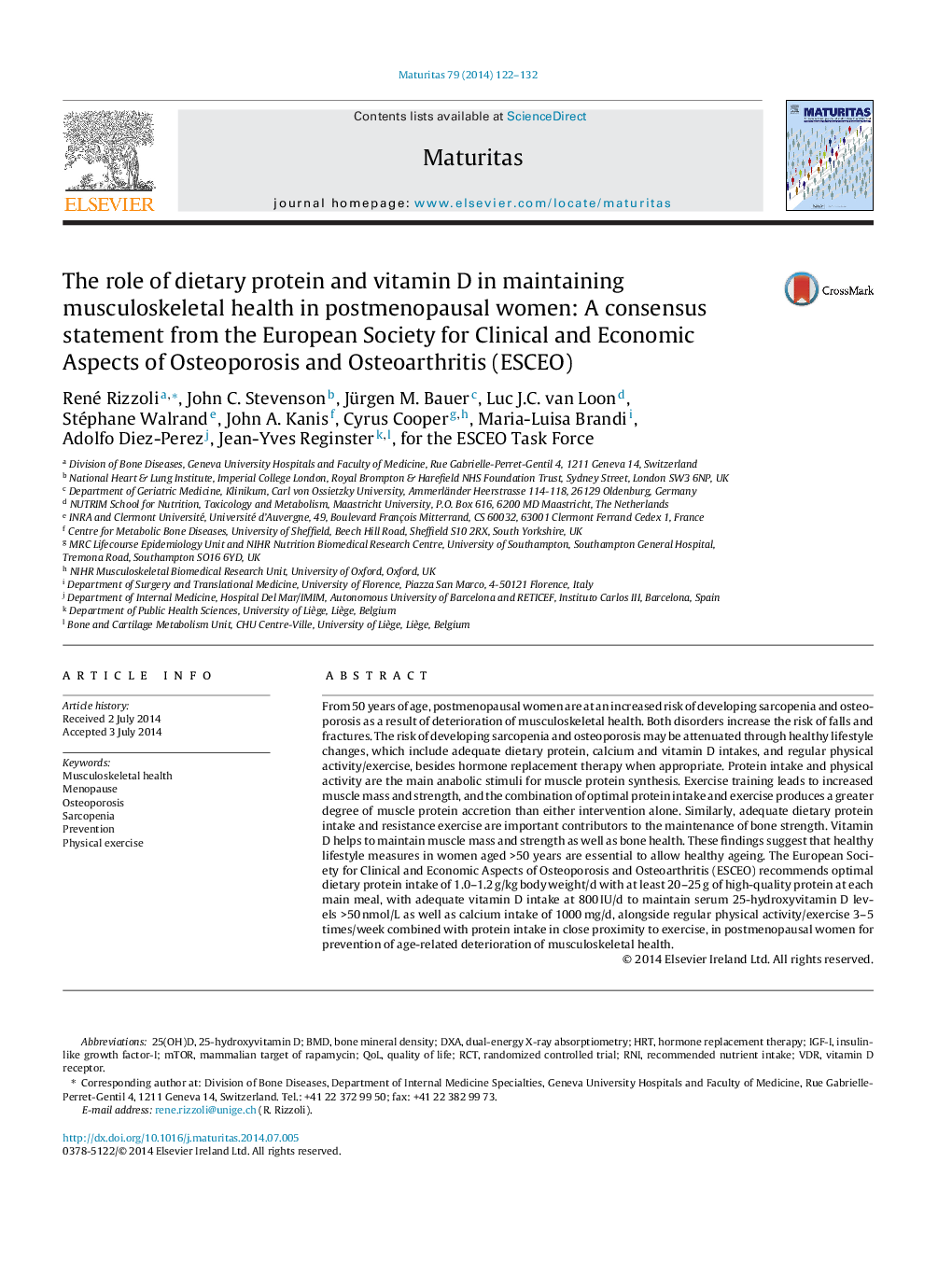| کد مقاله | کد نشریه | سال انتشار | مقاله انگلیسی | نسخه تمام متن |
|---|---|---|---|---|
| 1917343 | 1047893 | 2014 | 11 صفحه PDF | دانلود رایگان |

From 50 years of age, postmenopausal women are at an increased risk of developing sarcopenia and osteoporosis as a result of deterioration of musculoskeletal health. Both disorders increase the risk of falls and fractures. The risk of developing sarcopenia and osteoporosis may be attenuated through healthy lifestyle changes, which include adequate dietary protein, calcium and vitamin D intakes, and regular physical activity/exercise, besides hormone replacement therapy when appropriate. Protein intake and physical activity are the main anabolic stimuli for muscle protein synthesis. Exercise training leads to increased muscle mass and strength, and the combination of optimal protein intake and exercise produces a greater degree of muscle protein accretion than either intervention alone. Similarly, adequate dietary protein intake and resistance exercise are important contributors to the maintenance of bone strength. Vitamin D helps to maintain muscle mass and strength as well as bone health. These findings suggest that healthy lifestyle measures in women aged >50 years are essential to allow healthy ageing. The European Society for Clinical and Economic Aspects of Osteoporosis and Osteoarthritis (ESCEO) recommends optimal dietary protein intake of 1.0–1.2 g/kg body weight/d with at least 20–25 g of high-quality protein at each main meal, with adequate vitamin D intake at 800 IU/d to maintain serum 25-hydroxyvitamin D levels >50 nmol/L as well as calcium intake of 1000 mg/d, alongside regular physical activity/exercise 3–5 times/week combined with protein intake in close proximity to exercise, in postmenopausal women for prevention of age-related deterioration of musculoskeletal health.
Journal: Maturitas - Volume 79, Issue 1, September 2014, Pages 122–132